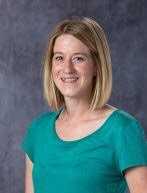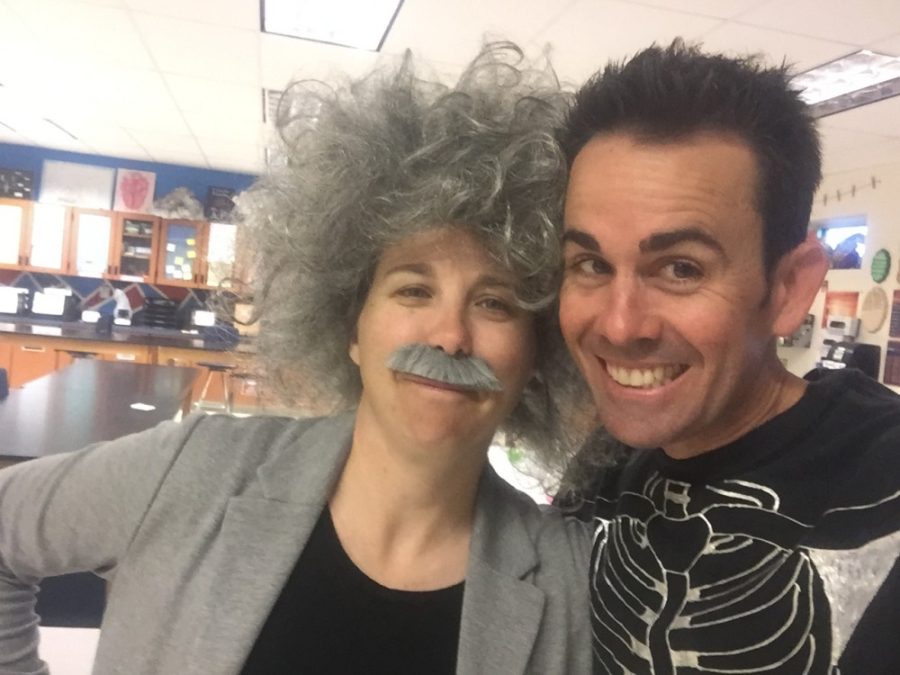Every year, the University of Arizona hosts a public lecture series featuring educators and researchers from the College of Science. Each series does a deep dive into a variety of science topics, and local high school teachers are invited to attend. Through the UA Honors College, high school teachers are invited to participate in a private Q&A with the lecturer after the talk.
Kim Farr, a science teacher at Cienega High School in Vail, became involved with the lecture series eight years ago.
“I had been attending the lectures with my husband for the two years prior, simply because we found them fascinating,” she said. “When we found out that as teachers we could attend a course surrounding the series, we jumped at the chance.”
RELATED: Science Lecture Series speakers discuss experiences as women in STEM
Joshua Farr, Kim’s husband, is also a science teacher at Cienega High School.
“I’ve always been curious and, being that I have attended UA, was eager to learn more,” Joshua said.
Kim said the lecture series is an opportunity to hear from the best scientists in their field, and it’s an opportunity not everyone has.
“The ability to be able to hear about the most current science directly from the researchers is truly incredible, and then to be able to ask them questions as teachers has been really enlightening,” Kim said.
The lecture series also brought together science-minded people from around Tucson and served as an opportunity to discuss the latest innovations. While all of the lecturers are from the UA, they are open to the public.
“I get time to interact with colleagues across Tucson, which might sound trivial but isn’t,” Joshua said. “We throw out a lot of ideas and questions prior to the lecture to prime our thinking. Collectively, we ask questions to the lecturer post-lecture, which almost makes us curious reporters.”
Sandra Crusa, a science teacher at Empire High School in Tucson, started attending the lecture series four years ago. Crusa said the lectures encouraged personal learning and growth in her understanding of science.

All of the teachers said they have easily integrated what they’ve gained from the lectures into the classroom.
“I’ve been using the content that I learn in lectures for the last eight years in my classes,” Kim said. “Each series, I find something new to bring to my students. I have developed lessons around topics that I learned about in the lectures.”
Kim said she uses figures and graphs from the lecture series and occasionally shows the entire lecture in class. Each year, she also encourages students to attend the lectures.
Joshua also has his students actively reflect on what they gain from the lecture series.
“Each week I give them the opportunity to talk to the rest of the class while I summarize some of my notes,” Joshua said. “This involves everyone, and I love hearing what their takeaway was. It allows me new avenues to explore topics in my class and, mostly, to promote discussion, which is vital to a healthy classroom culture.”
Since the lectures are given by people working in their chosen fields, they often include new findings from the world of science. Crusa brings these findings back to her high schoolers.
“With this particular lecture series, it’s really important for students to see and understand that science is always changing and growing and our understanding of these areas and topics should too,” Crusa said. “I think it was important for students to see the value of data and the evidence.”
Each teacher found a different lecture most interesting.
“My favorite lecture of all time was on the 1918 flu pandemic, which was so engaging,” Joshua said. He also said he learned about the importance of pattern recognition, which is applicable to interpreting data and identifying trends.
RELATED: Local teachers find lessons to take away from ‘Humans, Data and Machines’
Kim recalled multiple lectures.
“I was really encouraged this year by Joellen Russel’s talk about climate, and I learned a lot about the interactions between the ocean and atmospheric systems,” she said. “Feryal Ozel’s ideas about the role that failure or unexpected results plays in science [both this year and in 2017] was a really great perspective to hear directly from a researcher.”
Kim said she learns from the educator forum lead by John Pollard, a professor and assistant dean of the UA Honors College.
“Whether it’s a new way of thinking about a scientific idea or a pedagogical strategy or just an interesting thought to ponder, he brings so much to the course,” Kim said.
Follow Priya Jandu on Twitter









